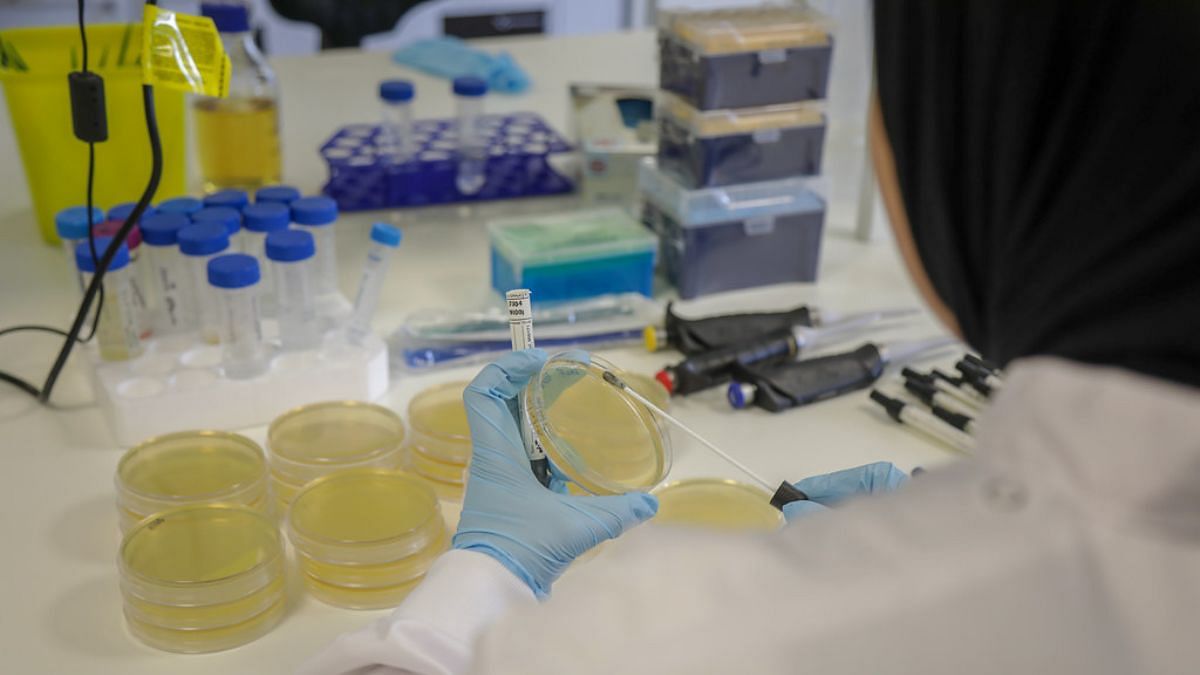New Delhi: Researchers at the University of Texas in the United States have modified a naturally-produced antibiotic using artificial intelligence (AI) and developed a version safe for human use — a development that is being called “revolutionary” for tackling antimicrobial resistance (AMR),
The paper, published last week in the journal Nature Biomedical Engineering, said that the research team employed a large language model (LLM), similar to the technology behind ChatGPT, to re-engineer Protegrin-1, a broad-spectrum antimicrobial peptide.
This well-known antibiotic, naturally produced by pigs, is effective in killing bacteria. However, previously, it was too toxic for human use because apart from bacterial cells, it also targeted membranes of healthy cells in the body.
The researchers modified Protegrin-1 with the aim to preserve its antibacterial properties while eliminating its harmful effects on human cells.
To achieve this, the researchers generated more than 7,000 variations of Protegrin-1 through a deep mutational SLAY analysis, a high-throughput method which allowed them to quickly identify which modifications could enhance safety.
After this, they used the LLM to evaluate these variations for their ability to selectively target bacterial membranes, effectively kill bacteria, and avoid harming human red blood cells.
This AI-guided approach led to the creation of a refined version known as bacterially selective Protegrin-1.2 (bsPG-1.2).
In preliminary animal trials, mice treated with bsPG-1.2 and infected with multidrug-resistant bacteria showed a significant reduction in bacterial levels in their organs within six hours.
“A machine-learning model trained with our datasets accurately predicted membrane-specific activities for over 5.7 million Protegrin-1 variants, and identified one variant that showed substantially reduced toxicity and retention of activity in a mouse model of intraperitoneal (abdominal area) infection,” the researchers noted.
These promising results suggest that bsPG-1.2 could potentially be used in human trials.
Microbiologists said this development has huge potential for tackling AMR, which occurs when bacteria, viruses, fungi and parasites no longer respond to existing medicines, making people sicker and increasing the risk of illnesses, deaths and spread of infections that are difficult to treat.
“This strategy can be applied to numerous antimicrobial peptides to assess the route governing membrane selectivity. This helps in synthetic designing of therapeutic peptides,” Dr Aravind Reghukumar, head of the department of infectious diseases, Government Medical College, Thiruvananthapuram, and convener of the Kerala Antimicrobial Resistance Strategic Action Plan, told ThePrint.
“This has significant implications for newer antimicrobial therapies with reduced toxicity and enhanced selectivity,” he added.
Prabhu Vinayagam, medical advisor with Orchid Antimicrobial Solutions (AMS), a division of Chennai-based pharmaceutical firm Orchid Pharma, too, told ThePrint that the breakthrough marks a pivotal moment in the global battle against AMR.
“By harnessing the power of AI to refine existing compounds, we are opening new frontiers in drug development. The success of bsPG-1.2 in preliminary trials is particularly encouraging, as it demonstrates the potential to create antibiotics that are both potent against resistant bacteria and safer for human use,” Vinayagam said.
He added that this approach could significantly accelerate our ability to respond to emerging threats and evolving pathogens.
“If this method proves successful in human trials, it can revolutionise not just antibiotic development, but potentially the entire field of drug discovery. We are witnessing the dawn of a new era in medicine, where human expertise and artificial intelligence collaborate to solve our most pressing health challenges,” he said.
Also read: Govt nod to 1st RSV drug for all kids under 2 yrs. Here’s what you need to know
AMR among top causes of deaths in India and rest of the world
In its latest report on antibacterial agents, including antibiotics, released in June this year, the World Health Organization (WHO) had said that although the number of antibacterial agents in the clinical pipeline increased from 80 in 2021 to 97 in 2023, there exists a pressing need for new, innovative agents for serious infections and to replace those becoming ineffective due to widespread use.
Since 1 July, 2017, as many as 13 new antibiotics have obtained marketing authorisation but only two represent a new chemical class, and can be termed innovative. This underscores the scientific and technical challenge in devising novel antibacterials that are both effective against bacteria and safe for humans, the report said.
In November 2023, the United Nations health body had said that AMR is one of the top global public health and development threats.
It was estimated that bacterial AMR was directly responsible for 1.27 million global deaths in 2019 and contributed to 4.95 million deaths that year.
In 2019, an estimated 2,97,000 deaths attributable to AMR occurred in India. The same year, as many as 10,42,500 deaths were associated with AMR.
ThePrint had earlier reported that over 50 percent of antibiotics prescribed in India have the potential to cause high AMR, according to a government report based on the country’s first large-scale multicentric study on the use of the antibiotics.
While the new technique holds promise for novel drug development, Vinayagam pointed that it would be a worthy reminder that it is imperative to use those antibiotics responsibly, lest they too do not end up with a curtailed useful life due to AMR.
(Edited by Radifah Kabir)
Also read: India seeing worst Chandipura virus outbreak in over 2 decades. Here’s what you need to know

